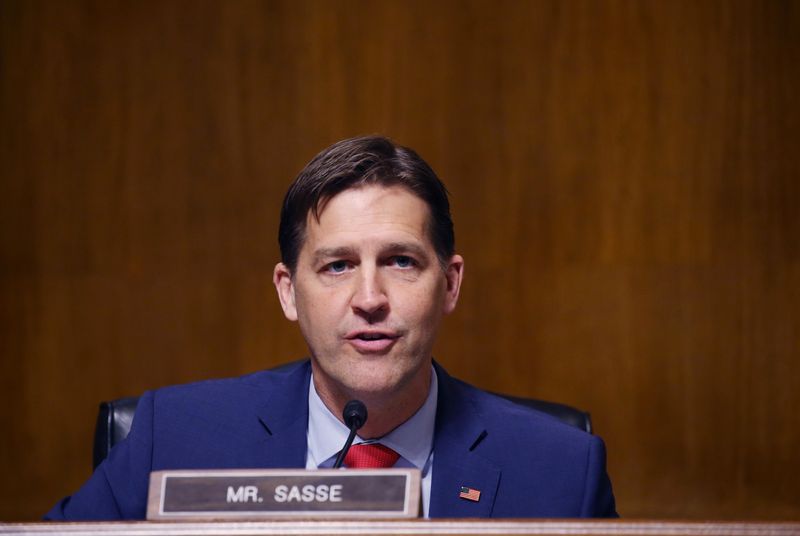By Kanishka Singh
WASHINGTON (Reuters) -Senator Ben Sasse, who voted in 2021 to impeach Donald Trump, suggested on Thursday that he was likely to leave the U.S. Senate, the latest Republican critic of the former president set to leave or lose political office.
Sasse, 50, represents Nebraska and was one of seven Republican senators who voted to hold Trump accountable on charges related to inciting the Jan. 6, 2021, attack on the U.S. Capitol.
His expected resignation will not alter the balance of power in the Senate, which Democrats control by a razor-thin margin, as Nebraska's Republican governor, Pete Ricketts, would appoint a successor.
Sasse, whose term does not expire until January 2027, said on Twitter that he was in talks with the University of Florida. The university, on its website, said its presidential search committee "unanimously recommends" Sasse as its next president.
Trump, who has hinted that he will run for president in 2024 and maintains sway over the Republican Party, has used the November mid-terms to target those who backed his impeachment, achieving high-profile success with the ouster of congresswoman Liz Cheney.
Of the 10 Republicans in the House of Representatives who supported impeachment, it is possible that only one will be in Congress after November's election. Only one of seven Republican senators who supported impeachment is up for re-election this year.
In his Twitter post, Sasse said he was talking with the University of Florida, a public school, about building "a vision" for the institution, which he called the "most interesting university in America."
Sasse, a former president of Nebraska's Midland University, first took office in early 2015 and handily won re-election in 2020.
Sasse publicly denounced Trump's false claims of widespread electoral fraud in the 2020 elections and said there was no basis to object to Democrat Joe Biden's election victory.
The University of Florida "is the most important institution in the nation's most economically dynamic state," Sasse said on Twitter. "Washington partisanship isn't going to solve these workforce challenges - new institutions and entrepreneurial communities are going to have to spearhead this work."

The university's board of trustees and board of governors must vote to formalize the appointment of a new president, which is expected to happen over the next few weeks into November.
According to the university's website, it had a student body of roughly 53,000 students as of fall 2020